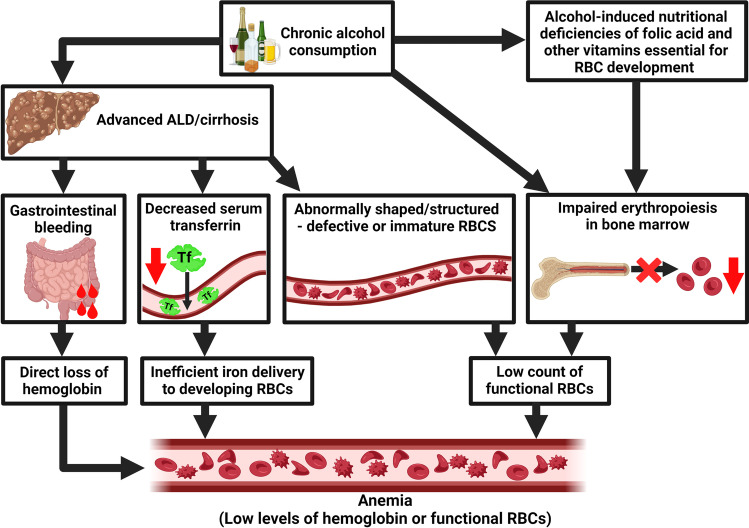Fig. 2.
Events causing alcohol-induced anemia. There are several alcohol-induced events that can lead to anemia, for example, alcohol-induced nutritional deficiencies (e.g., B12 and B9 deficiencies) and impaired erythropoiesis in the bone marrow. Also, alcohol directly exerts toxic effects and reduces the number of RBC precursors in the bone marrow. Chronic alcohol consumption can produce defective RBCs that are swiftly destroyed via hemolysis. Moreover, loss of liver functionality can decrease serum transferrin levels leading to inefficient iron delivery to developing RBCs. Gastrointestinal bleeding in advanced ALD leads to direct loss of RBCs resulting in anemia. The figure was created with BioRender.com

